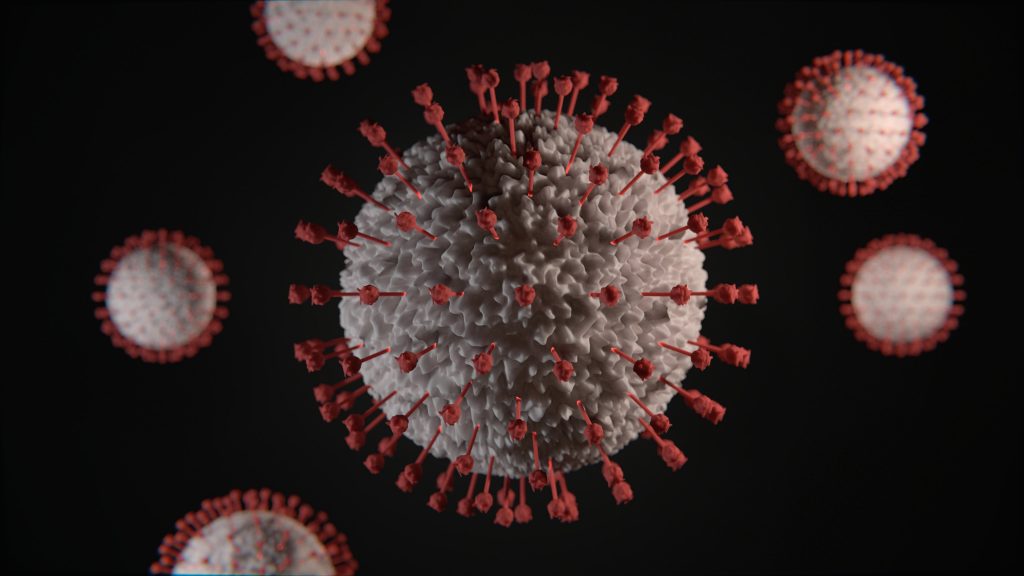The coronavirus pandemic has upended the entire world, turning phrases like social distancing, quarantining, testing and contact tracing all part of the social lexicon. It’s been a life-changing experience that will continue to impact people’s lives for years to come.

For millions of people who remain on the frontlines throughout the pandemic, the potential side effects from COVID-19 are of real consequence. The risk of contracting the virus is much higher for frontline workers who, due to the nature of their jobs, are forced to be inside crowded public spaces. According to the CDC, indoor workspaces are among the highest of high-risk environments to transmit and contract the virus.
What if I’m exposed to COVID-19 while at work?
The rules for exposure to the coronavirus are the same whether the virus is contracted at work, at home, or through contact with another person: always quarantine yourself and isolate yourself from the rest of the world for at least 14 days until the virus is no longer contagious.
According to the Harvard Medical School, the only exception to leave the house if infected with coronavirus is for medical care. If you need treatment from your primary doctor, or you require emergency aid at the hospital, those are the only reasons to break quarantine. Do not go to work, do not go to a school, and do not visit any public spaces while infectious.
Can my employer make me work if I have COVID-19?
The South Carolina Department of Health and Environmental Control (SCDHEC) created a document with a list of guidelines for businesses and employers to follow regarding the health and safety of their workspaces. Among the most important items on the list are:
- Watch for the most serious symptoms of the virus → cough, fever, or shortness of breath
- Actively encourage sick employees to stay home
- Separate sick employees at the workspace and send them home
- Perform routine environmental cleaning to sterilize and sanitize the workspace
While there are no legally mandated requirements to have paid sick days, the SCDHEC does encourage employers to have flexible sick leave policies that are consistent with CDC guidelines. For example, employees should not be required to receive a doctor’s note to validate their illness when they have symptoms of coronavirus. It could take several days for a doctor’s note to be acquired, which risks exposing even more people in the workplace to the virus.
Can I file a worker’s compensation claim for COVID-19?
If employers are inflexible with sick leave, thereby forcing employees to come to work while sick (potentially with the virus), it risks causing a coronavirus outbreak in the workplace.
Under South Carolina law, employees are entitled to file for worker’s compensation if an illness or a disease was contracted due to the working conditions on the job site. As a result, contracting coronavirus from exposure to another employee infected with the virus is grounds for a case against the employer.
However, there must be verifiable proof that the conditions in the workspace directly contributed to the spread of the illness or disease that compromised the health and safety of the employee. That’s why it’s important to hire a professional worker’s compensation attorney with a team of experienced investigators that can find evidence and connect dots to build a case for a claim.
Can I sue for mishandled coronavirus tests?
Over a year into the pandemic, and testing remains a scarce and not foolproof method to identify who may or may not have the coronavirus. This inability to administer proper tests can compromise the integrity of workspaces, but determining who is at fault for mishandled tests is not always a straightforward question to answer.
The employer may mishandle the tests or the samples extracted from employees, damaging the ability to identify who among the staff could be infected. On the other hand, the fault may lie with the CDC, which was the case with some of the first tests in the early days of the pandemic.
Identifying at what stage the integrity of the tests was compromised is what makes it so difficult to find the at-fault party who could be legally responsible for the error. It could be the employer, but it could just as easily be the doctors who administer the tests and handle the samples. The fault may also lie with the CDC or a government agency responsible for shipping tests between the workspace and the testing administration centers.
Long story short, theoretically, you could sue your employer for a mishandled coronavirus test. But you need evidence that the employer was responsible for the error in order for the claim to be a successful one. Without evidence, it’s extremely difficult to make that case.
















Add Your Comment